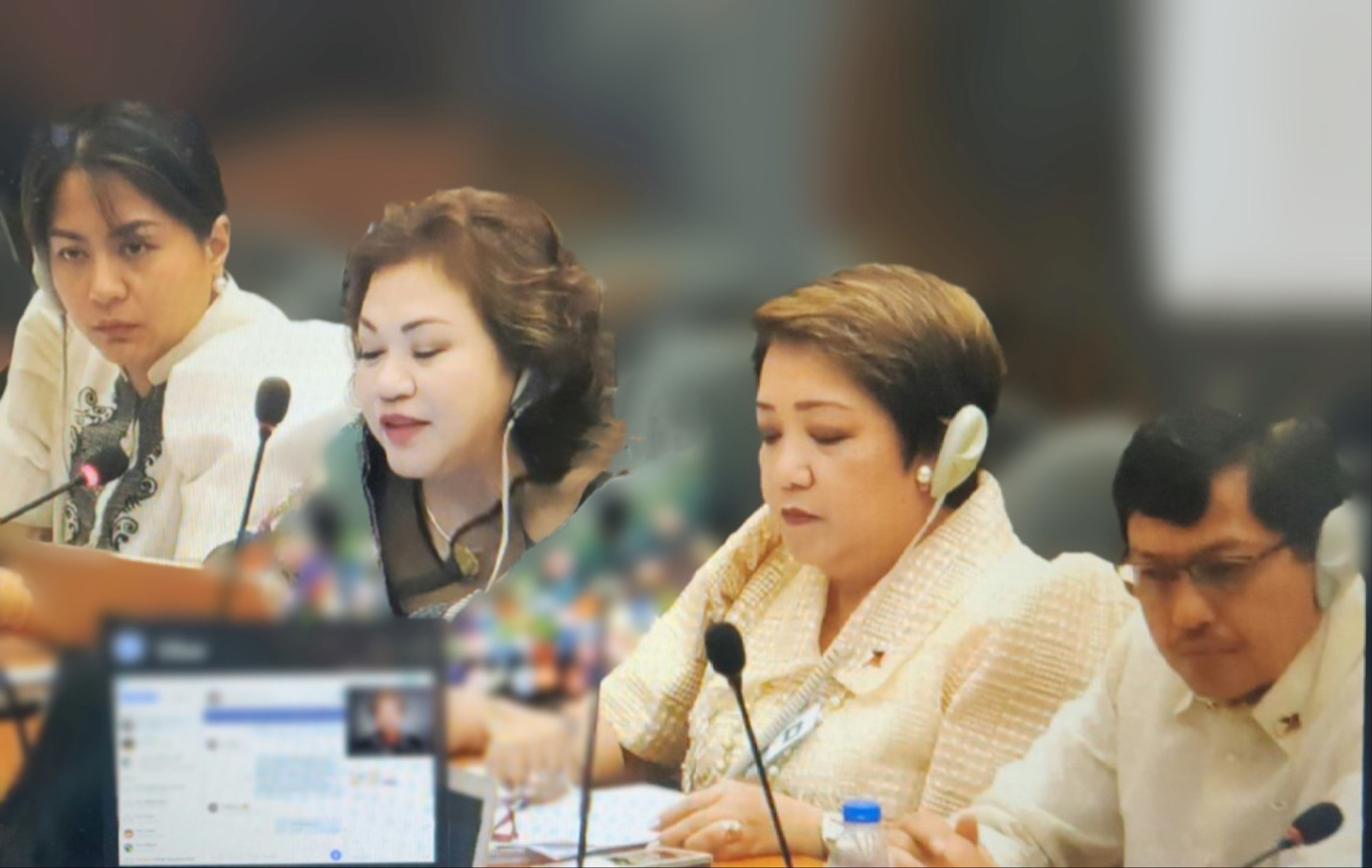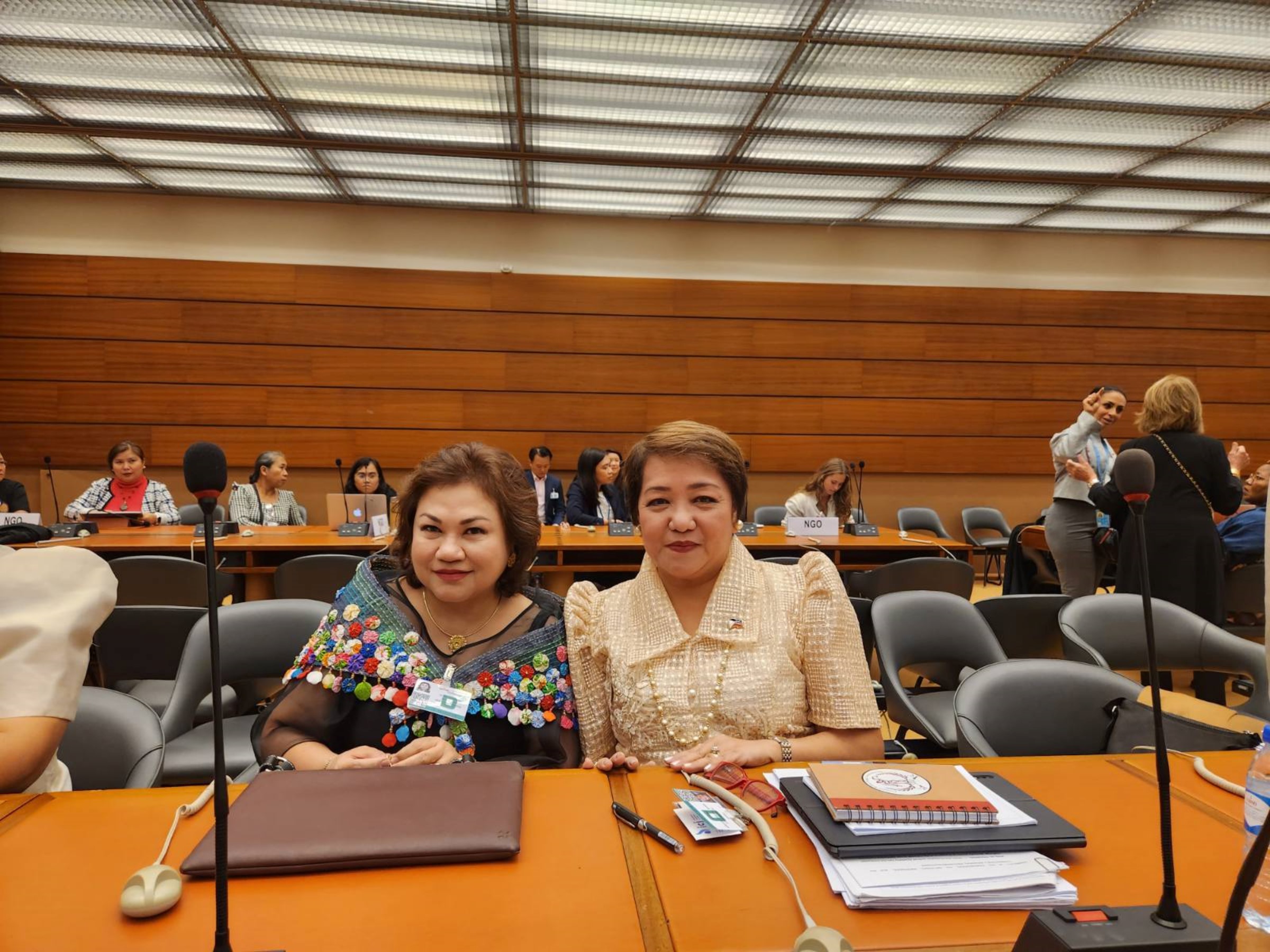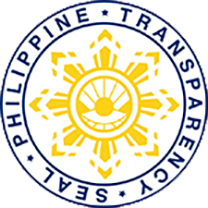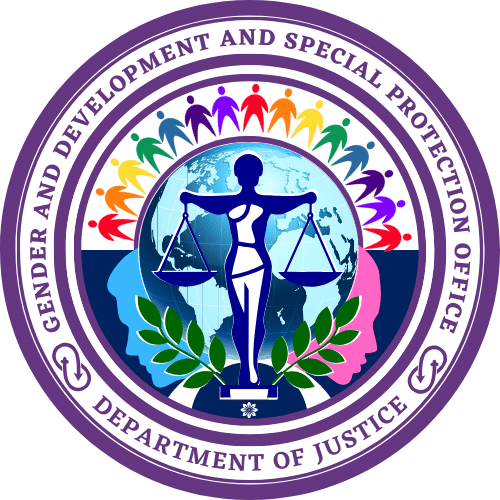Key representatives from the Philippine Judiciary highlighted the efforts of the Justice Sector Coordinating Council (JSCC) at the 2004th Constructive Dialogue at the United Nations Palais des Nations in Geneva, Switzerland on October 11, 2023, as they presented the progress and efforts being made by the Philippine justice system to realize the core intent and goals of the United Nations Convention on the Elimination of All Forms of Discrimination against Women (UN CEDAW).
The JSCC serves as a joint forum for dialogue on issues of common interest and a mechanism for effective coordination and sharing of information in support of the planning and the implementation of joint initiatives among justice sector institutions. It is composed of the Supreme Court, the Department of Justice, and the Department of the Interior and Local Government
Sandiganbayan Associate Justice Maria Theresa Mendoza-Arcega, Chairperson of the JSCC Technical Working Group on Communications and Partnership Building, and Deputy Court Administrator (DCA) Jenny Lind R. Aldecoa-Delorino outlined and showcased the endeavors and successes of the Philippine Judiciary related to both the implementation of the 16 pivotal Articles enshrined in the UN CEDAW and to the establishment and active operation of the JSCC’s 11 Justice Zones in the Philippines.
The Justice Zone project was established to strengthen the coordination and communication among the three principal agencies of the JSCC by serving as a venue and a mechanism for communication, principled cooperation, and studied coordination with great deference to institutional independence.
Justice Mendoza-Arcega and DCA Aldecoa-Delorino put the focus on various programs of the Philippine justice system that are specifically designed to eradicate gender-based discrimination, promote enhanced access to justice for the underprivileged, foster a courtroom environment that is equitable and sensitive to gender issues, and diligently adhere to international standards and conventions to safeguard due process, uphold the equality of rights, and ensure the preservation of human dignity.
They likewise shared the salient goals and the guiding principles embedded within the Judiciary’s Strategic Plan for Judicial Innovations 2022-2027 (SPJI), the Supreme Court’s blueprint for judicial reforms, highlighting the commissioning of two separate studies on Feminism in the Judiciary and on Gender Representation and Mobility in the Judiciary as component programs of the SPJI. The studies will address the need to identify problems at the interaction of sexuality and law to aid in developing reforms and policies towards correcting gender injustice and gender-responsive remedies, as well as provide corrective measure to overcome biases, inequalities, and discrimination.
Justice Mendoza-Arcega and DCA Aldecoa-Delorino also highlighted the Judiciary’s ongoing initiatives that echo the Philippines’ commitment to women’s right and justice.
These include comprehensive trainings and seminars, spearheaded by the Philippine Judicial Academy, which focus on legal frameworks and protocols that bolster women’s rights protection; the Enhanced Justice on Wheels, or EJOW, project, which aims to amplify physical accessibility to justice in remote rural areas while also equipping Barangay officials with the requisite skills to resolve community disputes and shield vulnerable women and children from harm; The Revised Guidelines for Continuous Trial of Criminal Cases, which safeguards and enhances the constitutional right of individuals to expeditious adjudication of criminal proceedings; the Revised Law Student Practice Rule, which allows aspiring lawyers to extend legal aid to women and children who might otherwise remain unrepresented; and the rigorous implementation of the Implementing Rules and Regulations pertaining to the Social Aspects of the Family Courts Act of 1997.










